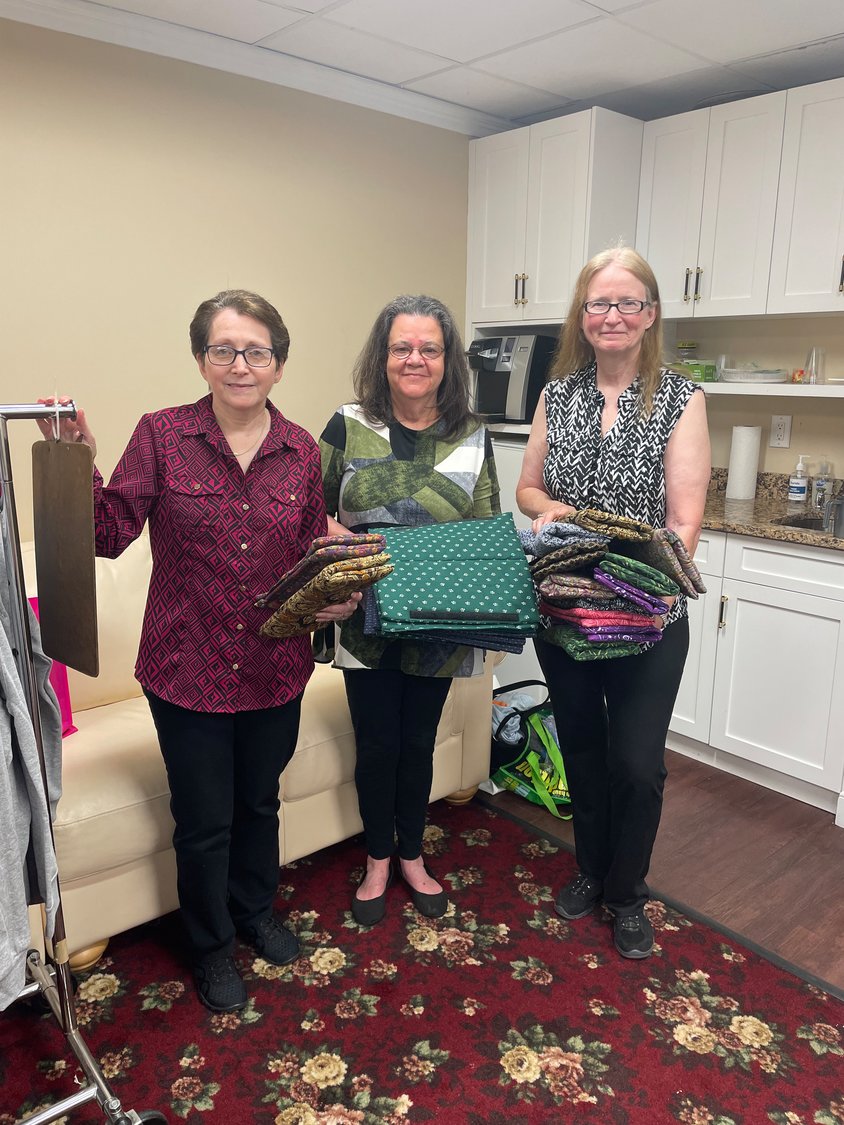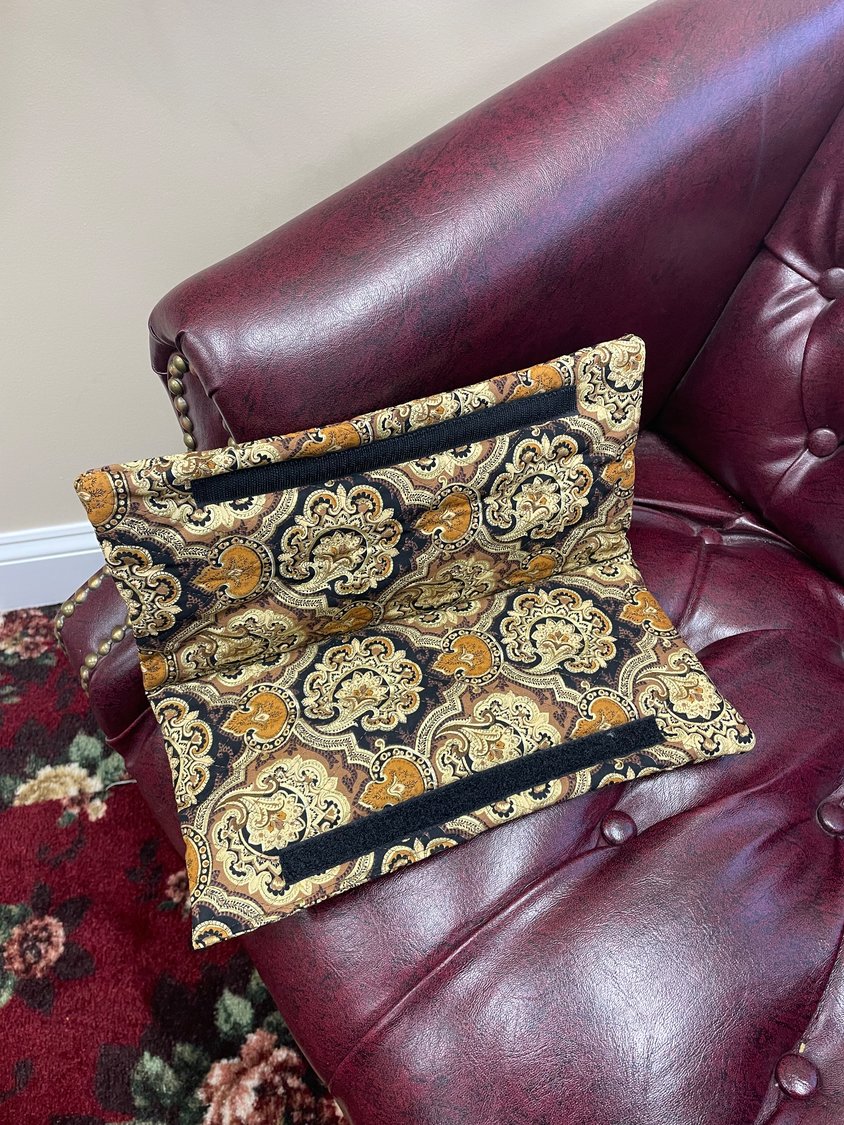Dress for Recovery, which helps women with breast cancer, gets useful donation
Treatment-friendly clothing available to all
Deciding what to wear is hard enough. But try doing it while fighting breast cancer at the same time.
Yet that’s the reality for so many women — and it’s hardly easy. Thankfully, one organization has stepped up to provide a little bit of help.
The Evening Star Quilters, a Mineola-based not-for-profit quilting organization, donated 50 seatbelt covers to Dress for Recovery — a clothing bank at the Chabad Center for Jewish Life, which serves an area that includes Merrick, Bellmore and Wantagh.
Dress for Recovery was founded by Loraine Alderman of East Meadow back in late 2020. She had been diagnosed with breast cancer the year before, and found that when patients faced cancer treatments like mastectomies, they often must wear surgical drains to aid recovery.
Dress for Recovery provides large shirts with ample space for the drains, as well as various zippers for doctors and nurses to access chest ports for chemotherapy.
“There’s not one store in New York, New Jersey and Connecticut where you can walk in and buy this type of clothing,” Alderman said. “They’re only available online, and they’re expensive. We are the only place where people can come and get everything — free of charge.
“You need the shirts that open up in the front and have the pocket for the drains. When you go into treatment, if you have a port, it’s helpful to have shirts that have a zipper for the port opening to allow access to treatments.”
But it’s not just clothes cancer patients have to worry about. It’s wearing just about anything — including seatbelts.
While they’re great for keeping drivers and passengers safe in a car, seatbelts tend to rub against a patient’s torso, Alderman explained, which can cause pain and discomfort on surgery wounds, radiation burns, and raw chemotherapy ports. Seatbelt covers — usually a small, fabric wrap that goes around a seatbelt — offer protection.
Chemotherapy ports are normally found on someone’s chest, and are the approximate size of a nickel. Because they are attached to the main artery, Alderman says these ports require a lot of protection.
“Most of them are under the skin — they’re inside of you,” added Alderman’s husband, Bill. “So, if (a seatbelt) pushes on it, it really, really hurts.”
Catherine Peterson, a member of Evening Star, developed the quilting pattern for the seatbelt covers that could be completed by any of its members. From that, 50 of these covers were made.
“They really picked out beautiful material,” Alderman said. “The craftsmanship was just amazing, I was blown away by what they did. It just shows the person that’s receiving it that care went into it.”
Peterson’s quilters kept in mind personal preferences when making the covers, using a number of colors and patterned fabrics.
“I was thinking, when we were making these, you want to have something that appeals to a wide variety of people,” she said.
When someone seeks out Dress for Recovery for help, Alderman stops to take the time to meet with them.
“We let people choose what they feel most comfortable with,” she said. “There’s so many things that are out of your control when you’re going through this whole process. It’s all these little things that can chip away a little bit of the stress.”
Since founding of Dress For Recovery, Alderman has seen the impact the clothing bank has had on those making the long journey through cancer.
“When you’re going through treatment, you sit there for many hours and you have a lot of time on your hands,” Alderman said. “We believe that you have to pay things forward, and we couldn’t believe that there wasn’t one store where you can walk in and buy this clothing. We tried to figure out how to make something good out of what was going on.”
Dress for Recovery is part of the Chabad’s Circle of Hope initiative, which helps individuals and families coping with breast cancer and other illnesses. Services are offered to everyone, regardless of religious beliefs.
Both groups also provide counseling, wigs, food and financial assistance for those facing breast cancer treatment.
With the donation of the seatbelt covers, Dress For Recovery can allocate resources to getting more shirts and other items. Working toward raising $20,000 for its own, designated workspace at the Chabad Center, every donation helps.
“I wish this was around when I was going through treatment,” Alderman said of her program Dress for Recovery. “We want to let people know that we’re here and everything is free of charge — it’s really about paying things forward and just trying to help other people.”









